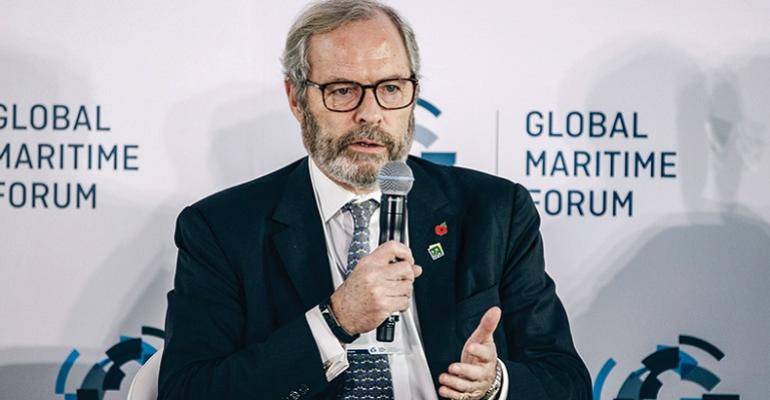Speaking at the Hellenic American & Norwegian American Chambers of Commerce annual shipping conference Michael Parker, top ship finance banker at Citibank, and a top architect of the Poseidon Principles, commented in their first report on meeting decarbonisation targets, saying, “We’ve learned a few things….but we won’t change the underlying principles until the IMO changes regulations.”
Explaining year-to-year variations in AERs (Average Efficiency Ratios) the numeraire used by Poseidon Principles signatory banks to measure carbon intensity, he said that: “We are all learning…emissions is just as much about operations as it is about the design of the ship.”
Parker pointed to another key saying: “I think what we will see, this year, and increasingly in future years, is this use of data…there will be more and more data, essentially transparent…we can then judge things”.
These remarks comported with those of Matt Heider, ceo of Nautilus Labs, on a “Tech” panel later in the conference day, who noted a shift in his company’s business serving top owners, including major Greek and Norwegian names, from a focus on internal optimisations - in particular, reduced fuel consumption - towards an additional capability of providing accurate reporting of emissions data, both internally and to external stakeholders.
Moderator Larry Rutkowski, a long-time ship finance lawyer at Seward & Kissel, queried Citi’s Parker on whether charterers might pay for modifications (or retrofits) to existing vessels that could see lowered AERs.
After pointing to Cargill, and oil majors, that have indicated a willingness to do so, he said: “Building new ships with old technology makes no sense from a global emissions standpoint… and there’s no point scrapping quality ships that with some investment can have a prolonged life.”
Putting this in the context of the banks as Poseidon signatories, he said: “For us, as signatories, it’s about lowering the emissions in our portfolio, and if we can help those ships lower their emissions, then we are meeting our obligations.”
Copyright © 2024. All rights reserved. Seatrade, a trading name of Informa Markets (UK) Limited.
Add Seatrade Maritime News to your Google News feed.  |

